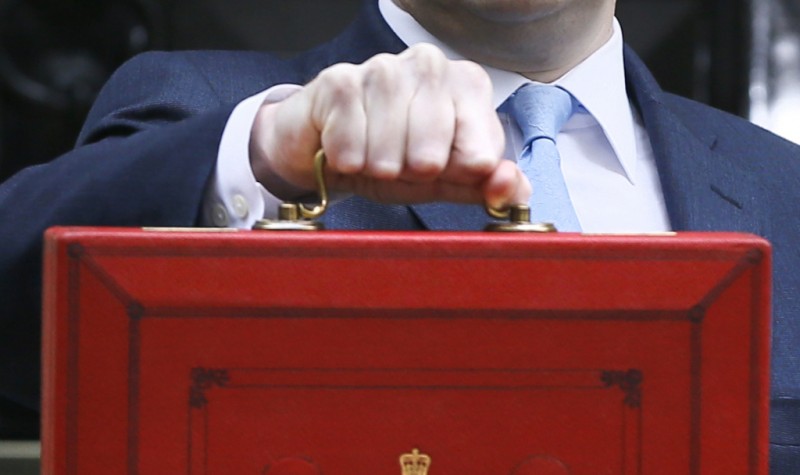More of a Smudgeit Than A Budget

Broadly speaking I think that anyone who has voted for a Labour government over the years since the war has become increasingly disillusioned with what they’ve got in return, and I think that’s set to continue because the whole idea of the Labour party is now obsolete – Socialism has outlived its usefulness and relevance. Those who have voted for a Tory government over the same period will have broadly been happy campers. What people who voted for this government want from a budget is to stop having their pensions and savings eroded by this toxic low-inflation environment. But that’s not what’s on offer.
The biggest problem with policy-making is that game theory applies. People will adjust their behaviour after the budget and Osborne may not get the effect he hoped for – the law of unintended consequences. A game of second-guessing. And this budget doesn’t seem to be about economic growth. “This is big Budget for a country with big ambitions” Osborne said in his speech. What big ambitions? Big ambitions to minutely tweak different aspects of life so as to make little difference? Big ambitions to be slightly less subordinate to Brussels? Big ambitions to keep things broadly the same? Buy that man a dictionary.
-

They’re safe.
First off, one of few pieces of good news: nothing on beers wines and spirits! Yay!
A “Budget for Working People”? The notion there could be what we think of as full employment in a developed nation ever again is entirely wrong. 8% permanent unemployment and still rising is a fact of life, and in a generation that’ll be 25-30% and it won’t stop there. So straight off it’s a minority budget. And I don’t think many working people will be celebrating much more than the lack of an increase in duty on drink. London-based employees will be dismayed at the paltry increase in the 40p tax threshold – just 1.45%, at least the personal allowance is up 3.77%. That’ll be swallowed by the real rate of inflation quite easily I should imagine.
CT being reduced is a good thing – this may encourage companies to relocate here, or at any rate not leave (except for HBSC – see below). 19% in 2017 and down to 18% by 2020 is competitive. Sadly it won’t shake the tree and put zombie companies out of business, but it will strengthen the corporate sector in general.
Companies that sell to poor people will be pleased with the introduction of a national £7.20 minimum hourly rate. It’s also great news for Eastern Europeans working in the capital. Until equilibrium returns, they will be able to send more money home. Beneficiaries should include Primark (part of ABF), MacDonalds and Morrisons. Perhaps it will also revive the fortunes of Argos owner, Home Retail Group. It will also help fuel the inevitable above inflation price increases in public transport fares. What is curious is they’ve made no attempt to regionalise that, meaning some in London won’t feel it at all, already earning over £7.20 per hour, which is just £14,400 p.a. full time.
We approach benefits differently than they do in the US. There it’s all “like, yanno, here’s not-enough-money to live on, now don’t be breaking no laws, and we made plenty of ‘em, or we’ll throw you in jail forever”. And they do indeed have the biggest prison population in the world per capita as evidence of this undeclared policy.
In the UK I think of benefits as protection money. “Look mate, we know you are so uneducated that you probably would hurt GDP if you had a job, so here’s the thing old bean, just stay in your estate so we know where you are, and we’ll give you cable tv, and fags and booze, and wonga to look after your kids, alright?” I think that contract is hurt at best by this budget, hard as it is on benefits and welfare. A good area to invest might be some security products. Because there will be more social riots, judging by the cuts in benefits, and also a rise in property crime is my guess.
-
-

Ayn Rand: “Potentially, a government is the most dangerous threat to man’s rights”
-
Actually, Ayn Rand, darling of the American right, would be well chuffed with this budget as it is based on the philosophy of her writings. It’s encouraging people to take responsibility for themselves rather than accept hand-outs. And also not offering them any choice in the matter! A tough pill to swallow for a nation where for years a legitimate way onto the property ladder has been teenage pregnancy leading to the right to buy.
Normally budgets are a redistribution of wealth, but here it seems to be all take and no give. Fair enough we need to reduce the budget deficit, but none of these measures are stimulating the economy. They are, if anything, fuelling a black market and crime.
There’s no encouragement for anyone saving to buy their first flat, no encouragement to save money at all. Bizarrely though, no encouragement to spend it either. Phasing out mortgage interest relief may slow down the property bubble a little, but it’s neither going to bring prices down, nor encourage building. A lot of what I’m seeing here seems to encourage stagnation!
It appears the only objective of the budget is to bring policy into line with how it would have been if the LibDems (remember them?) hadn’t been involved, and eliminate the budget deficit more slowly than promised.
They’ve hurt banks as well, who, don’t forget, are the backbone of our GDP and our standing in the world as a leading financial centre. A Corporation Tax surcharge for the banking sector is not going to help keep banks like HSBC here, but does keep my 2008 prediction alive: don’t invest in banks because every time they make some profits government or some other body will take it off them. And that’s exactly what’s been happening for the last 7 years.
So as the title says, more of a Smudgeit than a Budget.
The only one really good thing in it is the inheritance tax threshold on family homes being increased to £1m. How to make sure our parents slow down with that spending that they said was Inheritance Tax Planning…
Comments (0)